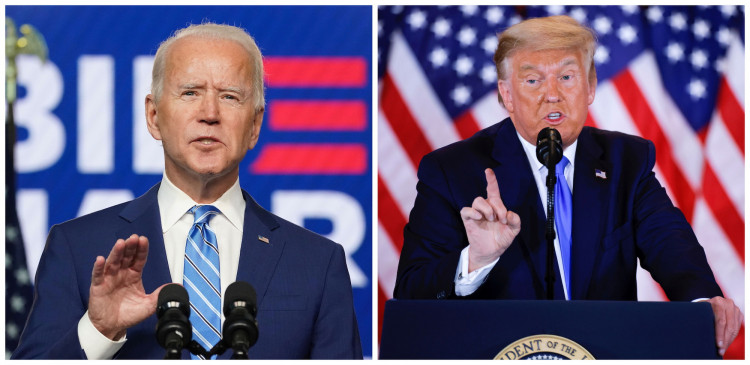President Joe Biden and former President Donald Trump have both accepted an invitation from CNN to participate in a historic early debate on June 27, setting the stage for a crucial showdown that will shape the final months of the 2024 presidential campaign. The news comes after a series of public challenges and counterproposals between the two political rivals, with both candidates expressing their eagerness to face off against each other.
In a post on X (formerly Twitter), Biden announced, "I've received and accepted an invitation from @CNN for a debate on June 27th. Over to you, Donald. As you said: anywhere, any time, any place." Trump later confirmed his acceptance to CNN's Kaitlan Collins, stating, "The answer is yes, I will accept."
The agreement to hold early debates marks a significant departure from the traditional fall schedule organized by the Commission on Presidential Debates. Biden's campaign had previously called on Trump to join him for two presidential debates hosted by news organizations and formally informed the commission that the president would not participate in its previously scheduled fall debates.
In a direct-to-camera video released on Wednesday, Biden challenged Trump, saying, "Donald Trump lost two debates to me in 2020. Since then he hasn't shown up for a debate. Now he's acting like he wants to debate me again. Well, make my day, pal, I'll even do it twice. So let's pick the dates, Donald - I hear you're free on Wednesdays."
Trump, in a post on Truth Social, accepted the revised schedule, stating, "I am Ready and Willing to Debate Crooked Joe at the two proposed times in June and September," adding that he would "strongly recommend" more than the two debates proposed. A senior Trump adviser told CNN they are "ready to debate" Biden and are reviewing the terms but are eager for an onstage match-up.
According to a news release from CNN, the June 27 debate will be held in the network's Atlanta studios with no audience present, marking a departure from the traditional format of presidential debates. Moderators for the debate and additional details will be announced at a later time.
The Biden campaign's proposal for an altered debate schedule comes in response to changes in the structure of elections and the interests of voters, citing the timeline of early voting and the commission's perceived inability to enforce rules in the 2020 debates. The campaign also proposed that a vice presidential debate take place in late July after the Republican Party nominates its candidate for that position.
The decision to withdraw from the debates hosted by the Commission on Presidential Debates aligns with a move made by the Republican National Committee about two years ago, alleging bias against Trump. The request for earlier debates could be seen as an effort to engage voters as soon as possible and potentially weed out third-party candidates that could cause problems for both Trump and Biden.
For millions of Americans, the debates will represent the most extensive scrutiny they'll be able to give either candidate since the 2020 election, making them a critical moment in the campaign. The chance to see how both candidates perform will be particularly important for voters concerned about Biden and Trump's ages, as Trump turns 78 in June and Biden turns 82 in November.
Republicans have been pressuring Biden to debate Trump for months, with the president previously offering non-committal answers on whether the face-offs would take place. Trump's team is eager to get the former president on the debate stage as early as possible, citing the need to reach voters before they make their decisions, particularly in areas with early voting.






